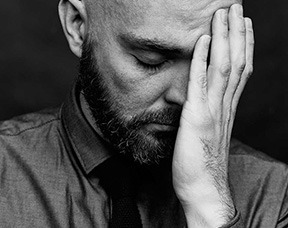Men who have been diagnosed with prostate cancer may experience fatigue as a serious side effect of both their prostate cancer and its associated treatments. Physically speaking, being fatigued can leave your body feeling drained, lethargic and weak. It can also adversely affect your energy levels as well as your ability to maintain daily normal function. The specific reason(s) for cancer related fatigue is unknown. However when being treated for prostate cancer your body will undergo a number of physical changes and any one factor by itself or combined can contribute to prostate cancer fatigue.
Causes Of Prostate Cancer Related Fatigue
The following prostate cancer treatments are commonly associated with the onset of prostate cancer fatigue.
Chemotherapy
Any type of chemotherapy can potentially cause fatigue in patients. However the side effect is more common with the drugs vincristine and cisplatin. Patients often feel fatigued after undergoing several weeks of chemotherapy but this usually varies from patient to patient. Fatigue can last for as little as a few days, or may even persist throughout the course of treatment.
Radiation therapy
Radiation therapy can cause fatigue that will gradually increase over time regardless of where the treatment site is located. Fatigue usually tends to last several weeks following treatment but can continue for several months to a year even after the treatment has concluded.
Combination therapy
Undergoing more than one prostate cancer treatment at the same time will increase your chances of developing fatigue.
Additional contributing factors to fatigue include:
- Chronic or severe pain
- Lack of sleep
- Stress
- Depression
- Anemia
- Poor nutrition
Managing Your Fatigue
The most effective method in dealing with fatigue is to ascertain and treat the underlying medical cause. The problem with this however is that often times fatigue may be from a combination of factors as opposed to just one. The following tips can help you with managing your prostate cancer fatigue.
Assessment
Maintain a journal to help you identify the exact time of day when you are either most fatigued or when you have the highest level of energy. Make note of what you feel may be contributing factors to your fatigue. In addition be alert to your personal warning signs of fatigue which may include: decreased energy levels, sleepiness, weakness or anxiety. This will help in evaluating your energy levels and effectively managing your fatigue. In addition you can also:
- Maintain proper nutrition
- Moderately exercise on a regular basis
- Learn differents methods to manage stress
- Balance your rest and work schedule
Following prostate cancer treatment be sure to mention any concerns you may have with your doctor regarding any fatigue you may experience. If you have any of the following difficulties you feel may be contributing to your fatigue make sure to contact your doctor immediately. These include:
- Increased shortness of breath
- Uncontrolled pain
- Inability to control side effects from treatment
- Uncontrollable anxiety or nervousness
- Ongoing depression


